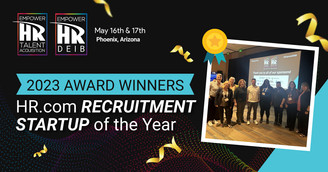Welcome to Election Day 2020
Or, perhaps, Election Week. (Election Month?) It feels like we have been discussing this day for four years, and here we are. Even though a huge chunk of people have already voted, especially in the context of COVID, we still tend to celebrate the drama and the intrigue of the night. In that vein, we wanted to get in the fray a little bit. But … obviously we’re not inherently political. We’re a two-way interviewing tool. That said, however, all vectors of the recruiting ecosystem — candidates, recruiters, hiring managers — have seen the “politics” that can creep into recruiting, and there’s a small angle to discuss therein.
Transparency and Fact-Checking
Political candidates get fact-checked on virtually everything they say; there’s an entire site called Factcheck.org which has done this for the whole Biden-Trump election.
The implications around this in recruiting are real. First of all, for better or worse, most interviews are not “fact-checked.” There might be calls to references (ideally there are), and for a higher-compensation hire, there might be more checking of previous accomplishments, KPIs, etc. But for a large chunk of hires, nothing is being fact-checked in a conventional sense. There’s a lot of gut feel, assumption, and quick resume scanning.
This also means that, just like is common among politicians, candidates’ answers to questions may change over time. If you have 4+ interviews for a role with four different stakeholders, will your answers change based on who’s asking the questions? Based on the role in the hierarchy? Based on you just forgetting what you said in an oddly-similar interview earlier that day? Will the questions themselves change?
This may seem like “Well, that’s just the way recruiting is!” but the fact is that a lot of inefficiency in recruiting occurs because of this lack of transparency. The same questions are asked repeatedly of one candidate (ineffective), or the candidates are asked different questions in scattered orders (not best practice), and because we too often rely on scribbled notes or gut feel, changes in candidate answers are not explicitly tracked and noted. None of this helps you, process-wise, to get the best hire.
It’s very ambiguous. It lacks transparency.
How HoneIt helps: We allow you to record candidate interviews into the cloud, and then sort the interview responses by specific question. This allows hiring managers to directly compare candidates, and also allows final decision-makers to see if candidates have changed their responses over time. And — bonus! — you can also check on your recruiters and improve their flow of questioning, just like a sales team would constantly be analyzed. The two-way, recorded nature of HoneIt allows for resolution of many transparency and ambiguity issues.
Hiring Managers and Recruiters
This can be a fraught relationship, Hiring managers and recruiters are both busy, communication is often done in quick, low-context spurts, and sometimes trust frays on both sides. Hiring managers think: “This recruiter doesn’t understand my team, department, and deliverables.” Recruiters think: “This hiring manager can’t carve out any time to help with this search, and isn’t providing the right information!”
Inherently, it can get pretty political. When it’s fraught and the two sides aren’t really talking, not much will get done. A hiring manager needs to lay out the importance of the role, the composition of the team, the compensation bands, the need-to-haves, the nice-to-haves, and even some context on where the role could evolve to in 3-5 years. The recruiter needs to take all that info, repeat it back to the hiring manager to build trust, and also explain their process in terms of channels used, resume screens, call schedules, when input is needed, and more.
There needs to be clarity, in other words, which is paradoxically often lacking in standard politics.
How HoneIt helps: We allow recruiters and hiring managers to tape conversations about a job role and turn those conversations into audio job previews, which give candidates more context and tenor for a job than bullet points do. Plus, because the actual interviews with candidates can be pre-sorted by question, it saves a ton of time for hiring managers, who can compare 2-3 candidates on one specific question and decide who to advance. Time saved is money saved, and hiring managers tend to like that.
The Bottom Line
If you look at the venture capital market for HR-related technology in the past five years, it’s billions of dollars deep. Now, at the same time, HR processes have improved somewhat, but not massively — and many employees and job-seekers still think a lot of the processes they have to go through are flawed and even outdated.
So Where is the Gap?
The money is being invested because investors realize that hiring is massively important to businesses, yet currently inefficient. When an investor sees the intersection of “Important” and “inefficient,” there’s money to be made — hence the volume of HR-type investments.
The tech is there by now. But in recruiting, what often makes the process inefficient isn’t the tech. It’s the politics, lack of transparency, rise in ambiguity, and more. What you need — here comes our stump speech! — is something that reduces the politics and increases the quality of knowledge about the candidate and interaction with the candidate.
HoneIt in 2020. (Or, 2021, 2022, etc…)
If you have any questions about how this all works, look at some of our testimonials, explore our platform, or feel free to talk to us about a demo or free trial. Honeit was created and designed by recruiters for recruiters — and the goal is to bolster relationships with hiring managers, candidates, data, and the overall organization. With Honeit, recruiting becomes a value-add instead of a logistical function that hops from call-to-call. We’d love to help you grow your recruiting function strategically.



